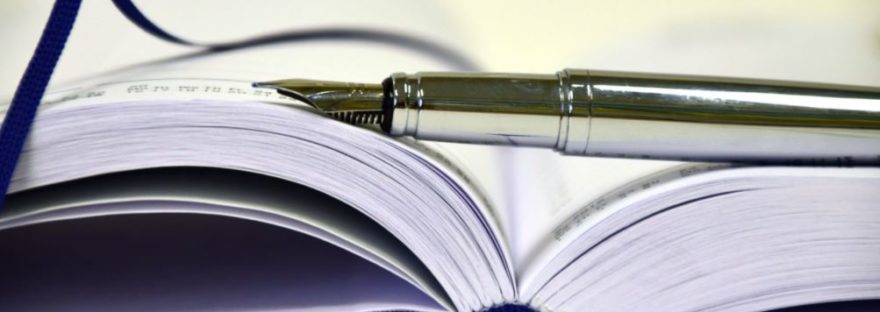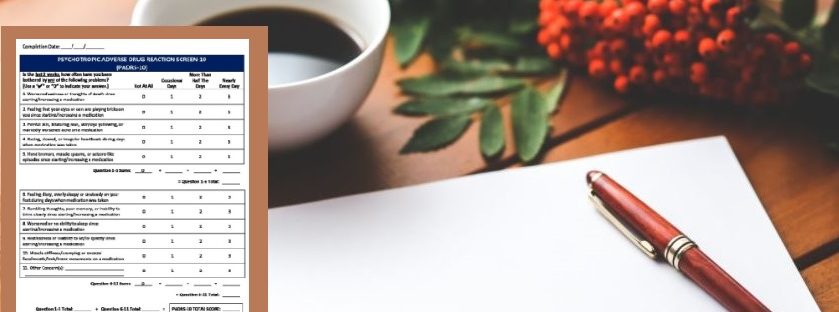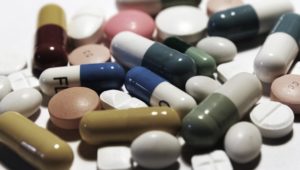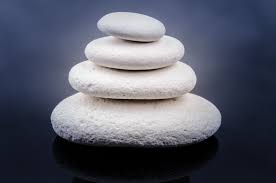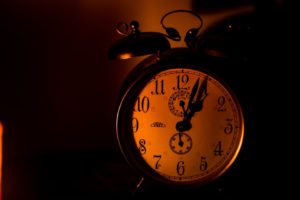
It’s 2:18 in the morning. The walls stare down as the clock peeks sleepily at you from it’s silent perch. Either you’ve just awoken to realize that it’s nowhere near time to get up or you’ve simply been lying in bed for what seems like a small eternity – waiting for the arrival of those blessed zZZzzz. Either way, it’s freaking early, and all is not well… As exhaustion builds, you think of the upcoming work/school day, and the frustration rises. You curse your brain. You curse your luck. You curse the fact that at least half the world seems to be sleeping, and you haven’t been deemed worthy of rest. You’d go on cursing, but that would only keep you awake longer, so you turn to your phone and find yourself flipping through a blog… about you – not sleeping.
If the story sounds eerily familiar, don’t be alarmed. According to the CDC, a review of state date from 2014 revealed that around 28-44% of adults reported getting less than 7 hours of sleep in a 24 hours period.6 Meaning anywhere from 3 to 4 of every 10 adults reported getting less than the recommended amount of sleep in 24 hours. Additionally, the American Sleep Association recommends that adults get 7-9 hours of sleep, while teenagers are encouraged to get 8-10 hours. Children of younger ages are encouraged to get even more, as much as 14 hours a day when including time taken for naps. At the same time, the American Sleep Association, reports that “50-70 million US adults have a sleep disorder” with 30% of adults reporting short-term sleep issues and 10% reporting chronic insomnia. This helps to explain why insomnia is the most common sleep disorder.7
So if you find yourself reading this article at 3:27 am, rest assured that you aren’t the only one. We’d welcome you to the club, but considering that you’re reading this, it would appear that you’re tired of being awake and tired. Considering that insufficient sleep is associated with increased incidence of motor vehicle accidents, decreased attention during daily tasks, worsened libido and fertility, and increased rates of obesity, heart disease, and diabetes, you’re right to be concerned.7,8 Keep reading to find a quick list of the 6 “medication” related issues that might be chasing off those wonderful nighttime Zs.
The Saboteurs:
- Alcohol – Yes, our first entry is more of an, shall we say, over-the-counter “medication”. Oh, I know that you would never use alcohol in an attempt to get a good nights sleep, but for all those other people who might, what follows is an extremely simplified explanation of how alcohol can be associated with insomnia. Because alcohol is a central nervous system depressant, it can help to provide a feeling of relaxation and/or sleepiness – depending on the “dosage” consumed. However, alcohol also suppresses the drive to breathe, which leaves your body with a problem. How to sleep in the presence of alcohol but not stop breathing? Your brain accomplishes this feat by activating centers and hormones that promote the process of remaining awake.3 Thus you remain awake (and alive) enough to continue breathing while the alcohol is around. Meanwhile, your liver goes about the process of clearing the alcohol from your system. Once this happens, there is nothing to counteract the hormones and processes that have been working to keep you breathing in the presence of the (now gone) alcohol. So what happens? You wake up,… but because your body can clear the alcohol you consumed faster than it takes to get to your late(r) morning alarm time, you wake early.2 You turn over and want to go back to sleep, but remember all those waking hormones. They’re tap dancing through your brain singing the Wakey Wakey song. Lather, rinse, repeat cycle, and… Hello; it’s our old friend insomnia again. Be advised that some of the short-acting benzodiazepines can result in the same pattern of early morning waking when used to induce sleep, which is why they’re not really recommended for long-term treatment of insomnia.
- Cannabis – “No worries,” you think. “Alcohol might not help me get a good night of sleep, but marijuana will.” Perhaps, but if it doesn’t, it might be because of the following. There’s a growing body of evidence that long-term cannabis use is associated with disruption of sleep – not its improvement.1,4 In 2014, researchers at the University of Pennsylvania at Philadelphia reported finding that people cited problems with “difficulty falling asleep, struggling to maintain sleep, experiencing non-restorative sleep, and feeling daytime sleepiness” in relation to any history of cannabis. The researchers found that the frequency of cannabis didn’t seem to correlate with the amount of sleep disruption, and people who began use prior to 15 years of age where more likely to report more severe sleep disruption.4,5 Additionally, past marijuana use was also associated with sleep disruption.4
- Stimulants (including caffeine and nicotine) – In the case of stimulants, a person may find him/herself wired for daylight as a result of either prescription or over-the-counter agents. Even so, if you aren’t going to abandon use altogether, your best bet is to manage the timing of administration. In layman’s terms, this means manage your stimulant use so most of it has been cleared from your system by the time you are attempting to go to sleep. This is fairly straightforward in the case of caffeine, nicotine, and immediate-release prescription stimulants because you just have to make sure they’re wearing off before you go to bed. The same concept applies when trying to manage extended-release stimulants, but each person’s body metabolizes extended-release stimulants slightly differently. You might have to track how long your medicine seems to work after taking it, which will give you a better idea of when it needs to be taken to avoid interfering with your sleep.
- Antidepressants – Although it is common for some antidepressants to initially be prescribed for administration at bedtime, that doesn’t mean that you can sleep on the medications if they continue to be taken at that time. Many antidepressants have side effect profiles that allow them to increase a person’s energy level as they first enter the bloodstream. Other antidepressants have a time-released capsule system that allow them to be released into the bloodstream over a longer period of time (i.e. hours instead of minutes). Combine a time-released capsule with stimulating side effects, and you can probably start to see how this scenario could have you tossing and turning until the early hours of the morning.
- Akathisia – This is a disorder associated with an internal perception of restlessness or inability to remain still. It often manifests as a medication side effect. In the field of psychiatry, antidepressant and antipsychotic medications are some of the agents more commonly associated with this disorder. If you spend your nights feeling as if you have ants in your pants (or bed), it may not be you. It might be your medicine.
- Hypomania – In layman’s terms, hypomania is a disorder that is associated with a person experiencing reduced or no need for sleep in association with symptoms that include racing/rambling thoughts, rapid speech, unexpected shifts in mood/irritability level, and sudden urges to complete tasks or activities (often at bedtime or the middle of the night). Hypomania is different from mania because the symptoms haven’t been around long enough to meet criterion for a full manic episode. Hypomania can present as part of a mental health disorder, and not as a result of any kind of medication plan. However, it’s important for people to know that any antidepressant that works (i.e. isn’t a sugar pill) is capable of causing mania or hypomania. Stimulants prescribed for ADHD (Attention-Deficit Hyperactivity Disorder) can produce similar kinds of side effects if a person’s daily dose is higher than what is needed to treat their symptoms. What is most important to know is that hypomania and mania are not disorders that you want to try to manage alone at home. Talk to the doctor about restoring balance to your sleep cycle.
It would be possible to stop there, but all this information begs the question of “What now?” Should you resign yourself to a lifetime of longer-acting benzodiazepines and sedative hypnotics whenever you want to get a restful night of sleep? The most appropriate answer is likely, “Well, no… not really.” You have options. They’re just less well advertised.
Less Messy Medication Options:
- Move Non-Sedating Medications/Substances To The Morning or Midday – If a medication doesn’t leave you feeling ready to go to sleep, consider keeping it away from your bedtime. This way it can potentially help you stay awake and have less of a chance of throwing off your sleep. You’ll probably want to take the same approach to any over-the-counter agents that tend to have a stimulating effect on you.
- Move Sedating Medications/Substances To The Evening or Bedtime – This way the medication can help you wind down in preparation for going to bed and sleep.
- Limit Alcohol Use In The Evening – If you absolutely must, use your nightcap to relax – but not to fall asleep.
- Get Medical Help With Side Effects – Issues with restlessness or hypomania should be discussed with your doctor. They may start by simply chasing off your sleep, but left unchecked these problems can wreak havoc on your life. If you suspect your medications of not playing fairly with your body, consider taking the Psychotropic Adverse Drug Reaction Screen-10 (PADRS-10) to screen for some of the more serious mental health medication side effects.
- Boost Your Brain’s Sleeping Power – Melatonin is a hormone made primarily by the pineal gland of our brains to encourage sleep. When the melatonin level rises, we are more prone to feel sleepy. When it is low, it is one of many signals to other systems that we should remain awake and alert. It is now possible to manufacture synthetic melatonin. So why not use it to encourage your brain to get some sleep? You might try 7-14 days of taking melatonin shortly before or at bedtime to see if it encourages your sleep to transition to a better schedule. You should know that melatonin won’t usually put you to sleep, but it could help you to feel sleepy enough to want to go to bed so nature can take its course from there.
- Deploy Medication Counter-Measures – Consider talking to your doctor about use of trazodone or hydroxyzine for improvement of your ability to fall asleep. These medications won’t necessarily treat akathisia or hypomania, but they can improve sleep disruptions related to other factors. Trazodone is an antidepressant medication that wasn’t found to have much ability to aggressively improve depressed mood, but it had an noteworthy side effect of putting people to sleep. Hydroxyzine is an antihistamine that has mildly relaxing and sedating side effects. As a result, many people with high stress levels or anxiety find hydroxyzine to be helpful for getting to sleep. These are only a couple of the medications that can use to help a person achieve restful sleep without prescribing a medication that has risk of habit formation, which is why you shouldn’t feel limited to only working with medications advertised in the latest television commercials.

